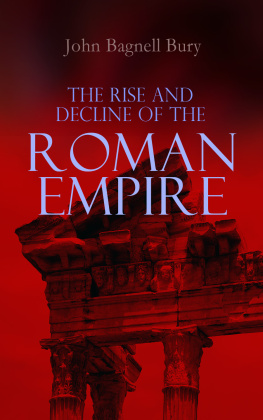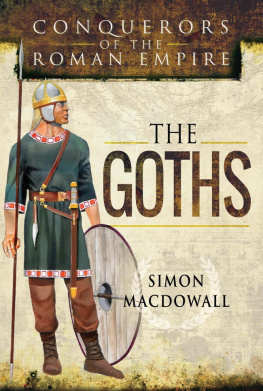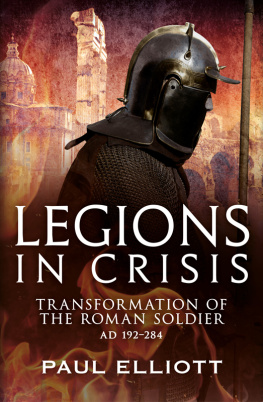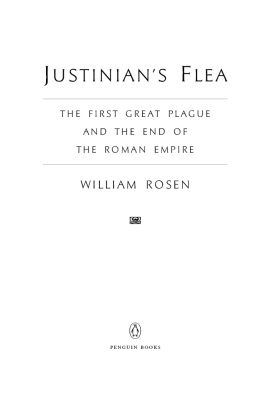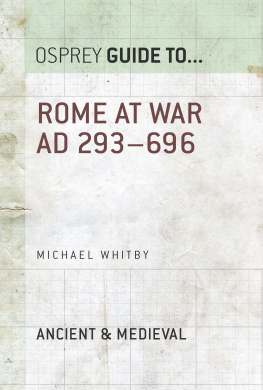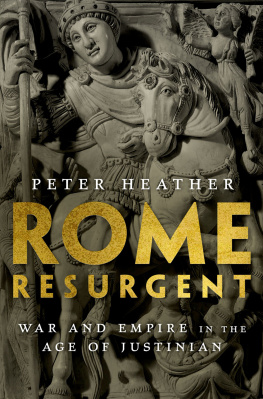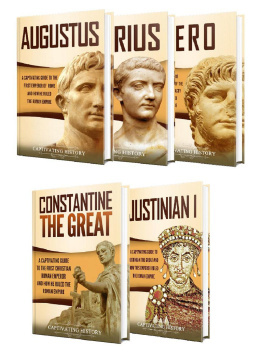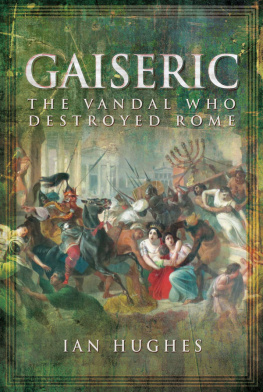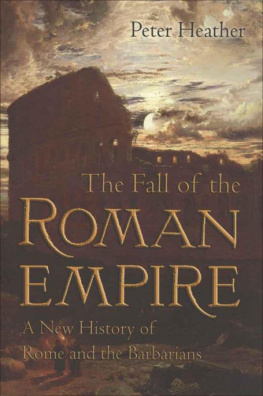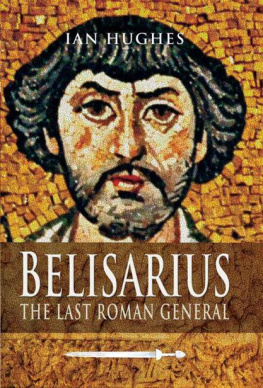First published in Great Britain in 2021 by
Pen & Sword Military
An imprint of
Pen & Sword Books Ltd
Yorkshire Philadelphia
Copyright Michael Whitby 2021
ISBN 978 1 52676 088 3
eISBN 978 1 52676 089 0
Mobi ISBN 978 1 52676 089 0
The right of Michael Whitby to be identified as Author of this work has been asserted by him in accordance with the Copyright, Designs and Patents Act 1988.
A CIP catalogue record for this book is available from the British Library.
All rights reserved. No part of this book may be reproduced or transmitted in any form or by any means, electronic or mechanical including photocopying, recording or by any information storage and retrieval system, without permission from the Publisher in writing.
Pen & Sword Books Limited incorporates the imprints of Atlas, Archaeology, Aviation, Discovery, Family History, Fiction, History, Maritime, Military, Military Classics, Politics, Select, Transport, True Crime, Air World, Frontline Publishing, Leo Cooper, Remember When, Seaforth Publishing, The Praetorian Press, Wharncliffe Local History, Wharncliffe Transport, Wharncliffe True Crime and White Owl.
For a complete list of Pen & Sword titles please contact
PEN & SWORD BOOKS LIMITED
47 Church Street, Barnsley, South Yorkshire, S70 2AS, England
E-mail:
Website: www.pen-and-sword.co.uk
Or
PEN AND SWORD BOOKS
1950 Lawrence Rd, Havertown, PA 19083, USA
E-mail:
Website: www.penandswordbooks.com
Preface
T his book originated in an approach from Philip Sidnell in 2010 asking whether I might be interested in contributing a volume on Justinian to his Pen and Sword collection. At the time, though the proposal was interesting, the move to a new job and then the challenges of university affairs and defending the Humanities meant there was no opportunity for anything other than desultory thoughts until my retirement in autumn 2019, so that I could not pretend that the following pages have benefitted from years of reflection and refinement. The delay has, however, enabled me to learn from the numerous recent publications relevant to Late Antiquity that demonstrate the continuing vitality of the subject. Selection of individual items is inevitably invidious, but David Potters Theodora places a much-maligned individual in a proper context and the volumes of Liverpool University Presss Translated Texts for Historians series constantly extend the range of material that is readily available in modern versions with good annotation. That said, the arrival of the Covid pandemic in early 2020, while offering some insights into how contemporaries might react to an unfamiliar disease sweeping across frontiers with lethal impact, has prevented me from reading everything that I might otherwise have done in spite of the considerable resources available on-line.
Procopius is inevitably integral to any treatment of Justinians wars, since his selection and presentation of information dominate our perceptions of events. While many traditional Procopian problems were laid to rest a generation ago by Averil Cameron, the literary study of Procopius as a writer remains in its infancy, although there are encouraging signs in the work of Elodie Turquois on the Buildings and Conor Whately on the Wars . Although Procopius is our most important source for military events in the first two-thirds of Justinians reign, I have aimed to avoid my account becoming a mere paraphrase of his version of events by presenting alternative versions wherever possible.
***
My main debts are to my family. My three sons, Max, Brodie, and Archie, have all dutifully enquired about progress over the years and, having repeatedly received parental admonitions to submit school and university work on time, have repaid the compliment. My wife Lynne has tolerated my occupation of our dining room for much of the past ten months and has also kept me supplied with all necessities while I was confined during the lock-down as one being shielded. This volume does not represent what she might like me to have written (as she has often made clear!), but then I am a historian rather than a novelist and in any case, it would be a rash individual who attempted to surpass Robert Graves Count Belisarius . It is dedicated to her with love and gratitude for everything, all her love and support over the years as well as the toleration of exile in the West Midlands.
Special thanks are due to Irene Moore for the excellence of her copy-editing and assistance with the images, and to my son Max for his patient tuition and support in the creation of Inkscape maps.
About the author
Michael Whitby is an ancient historian whose main interests lie in the late Roman period, specifically in the eastern empire during the sixth and early seventh centuries with a particular focus on warfare, religion and ancient texts. He studied as an undergraduate and postgraduate at the University of Oxford, where he also held a number of short-term positions, before moving to the University of St Andrews and then the University of Warwick. In 2010 he was appointed to the University of Birmingham as Head of the College of Arts & Law with responsibility for education and research across these broad disciplines. Since retiring in 2019 he has returned to academic research and writing.
Chapter 1
Justinian, Man and Ruler
J ustinian had been born Flavius Petrus Sabbatius, probably in the early 480s, at the small settlement of Tauresium near Scupi (modern Skopje in Northern Macedonia). Nothing more is known about his father Sabbatius, but his mother, whose name might have been Biglenzia,, the larger body of imperial guards. There is no evidence that Justinian ever saw active service, but by 518 he had also joined the elite candidati , the forty white-clad guards in personal attendance on the emperor. Here was a young man who was already being marked out for rapid advancement.


